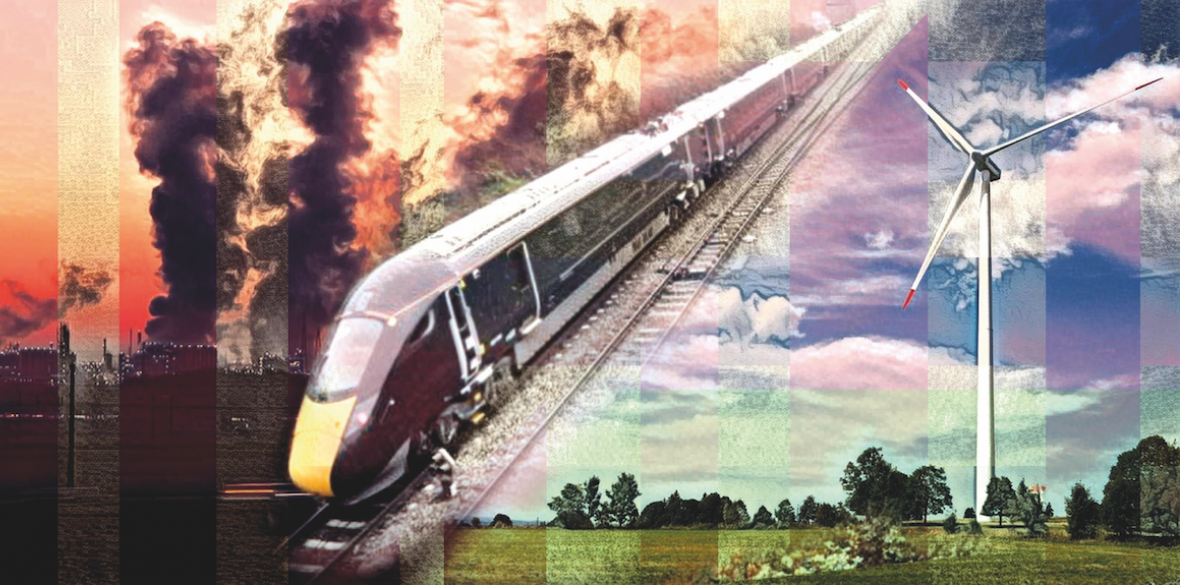This is the last article you can read this month
You can read more article this month
You can read more articles this month
Sorry your limit is up for this month
Reset on:
Please help support the Morning Star by subscribing here
BRITISH energy policy suffered a setback in September 2023 as energy giants Scottish and Southern Energy, Scottish Power, and Swedish multinational Vattenfall boycotted the British government’s auction of 15-year offshore wind farm contracts.
The failure of the government to secure any offshore wind farms was described by Greenpeace as “the biggest disaster for clean energy policy in the last eight years,” jeopardising plans to triple offshore wind power capacity by 2030 and putting Britain’s climate targets in doubt.
The energy giants’ boycott was a response to an auction price they claimed was too low after construction costs soared by 40 per cent due to supply chain inflation. In July 2023, Vattenfall also threatened to halt work on the multibillion-pound Norfolk Boreas wind farm as rising costs cut profit margins.
British government energy policy, which includes barriers to onshore wind and solar, and low levels of home insulation, was already heavily criticised by environmentalists and trade unions for failing to deliver a just transition and leaving the delivery of clean energy in the hands of private sector monopolists.
The energy and industrial strategies of successive governments since the 1970s demonstrate the waning ability of state monopoly capitalism in Britain to deliver long-term strategic planning and investment in essential public projects from clean energy generation to housing and high-speed rail.
Tory, Labour, and coalition governments have talked up partnership with business (meaning state funding for private monopolies to deliver public infrastructure) for 40 years as state planning, public investment and democratic ownership were consigned to the history books.
Keir Starmer’s 2023 Labour conference pledge to “bulldoze through” planning regulations to build new towns as part of a “decade of renewal” is a recent example of political endorsement of the private sector’s role in delivering essential public infrastructure.
Starmer’s headline announcement of 1.5 million new homes is a pledge to stand behind private housing developers’ profits by guaranteeing future work streams.
Contrast this with hapless Rishi Sunak’s announcement at the Tory conference at Manchester Central Convention Centre (formerly Manchester Central railway station) that he was scrapping the HS2 high-speed rail network... to Manchester.
For 15 years banks and big businesses had their noses in the HS2 trough, snorting billions in fees for consultants, lawyers, contractors, and inflated property prices. But HS2 was nobbled long before Sunak’s announcement.
Originally conceived to link Glasgow, Edinburgh, Leeds, Manchester and London in 90 minutes, in 2010 the DfT High-Speed Rail — Command Paper called for a “new British high-speed rail network connected to the wider European high-speed rail network via High-Speed One and the Channel Tunnel.”
In 2012, HS2 Ltd estimated direct trains from Leeds and Manchester to Paris would take 3 hours and 38 minutes. Birmingham to Paris was a mere 3 hours and 7 minutes.
Then in 2014, the government cut the HS2-HS1 link from the High-Speed Rail Bill. Lord Andrew Adonis later told parliament “...it seems absurd there is not a connection between [HS2-HS1] but I very much doubt it would be taken up in any big way. While we have cheap airlines that offer very frequent services to Manchester and Birmingham it is unlikely such a line would be viable.”
High-speed rail linking city centres in under five hours is highly competitive with climate-damaging short-haul flights. But when airlines, funded by lavish EU regional airport subsidies, lobbied to cut the link between HS2 and the Channel Tunnel, ministers agreed.
The vultures today picking over HS2’s carcass are a perfect symbol for such short-term opportunism.
Sunak’s announcement that a private development company will manage and finance HS2’s London terminus means Euston will become a gold rush for property speculators building “luxury flats” as trophy investments for global billionaires.
A government of rentier capitalists is incapable of developing strategic national infrastructure whether high-speed rail, renewable energy, or public housing.
In the decade it took Tories to turn HS2 into luxury home opportunities for their mates, China developed a 40,000 km publicly owned, high-speed rail network — the world’s largest.
Using breakthrough technologies, such as super-thin, large hollow aluminium to build aerodynamic nose cones, China’s latest Fuxing bullet train reaches speeds of 350 kmph to slash travel times on the 1,318km Beijing-Shanghai route from 37 to four hours.
Railways, like clean energy and public housing, are public goods that can only be developed by long-term public investment and public ownership. Only socialism will deliver our green transition.
Follow Alex on X @alexgordon4me.










